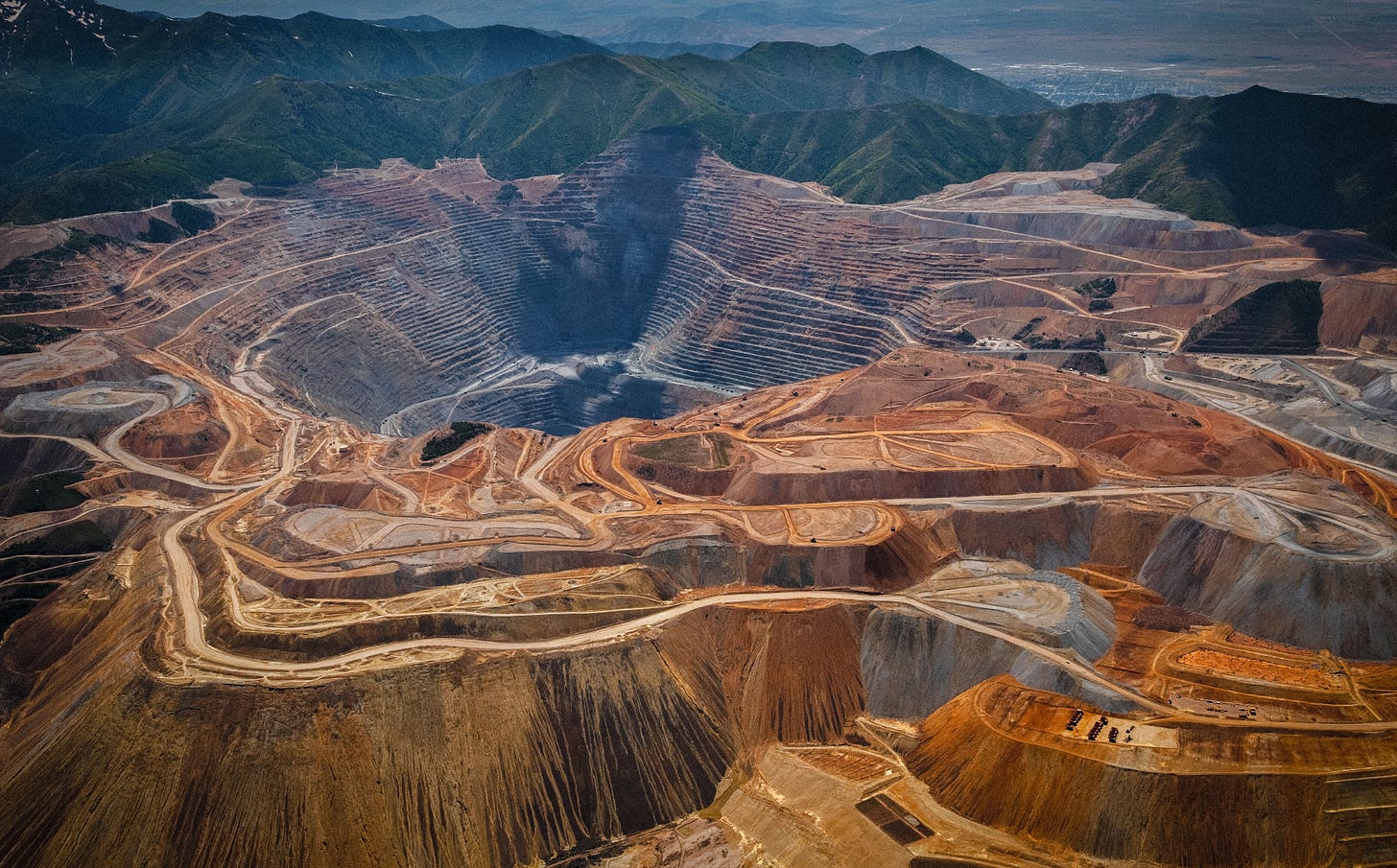Bringing Rare Earths Back
We can't have a strong defense industrial base without the ability to make things here at home.
Jim Banks serves as the junior United States Senator from the state of Indiana.
Making things here in the United States matters, especially the supplies and materials we would need during war or a crisis. That’s why it makes no sense that we allow the Chinese Communist Party (CCP), America’s greatest adversary, to have so much power over the flow of supplies that keep our economy and military running.
But for decades, American leaders from both parties allowed China to take greater and greater control over essential supply chains and manufacturing capacity. One of the best examples is rare earth minerals. These minerals are a key component in many advanced electronics and weapons systems, like drones and fighter jet engines. Without them, America cannot build computers or defend itself against foreign adversaries.
Yet today, China dominates global rare earth mineral supply chains. It’s responsible for approximately 60% of worldwide production and 85% of high-tech processing after the raw minerals are mined.
The United States was once the top global producer of rare earths. One of those companies, Magnequench, was based in my home state of Indiana. Magnequench used rare earths to make specially designed magnets for the U.S. military during the 1980s and 1990s. At one point, Magnequench produced 85% of the magnets the Pentagon used for its missiles and bombs.
However, China came to realize that they were sitting on their own abundance of rare earths and that they could one day dominate this important industry. As the Chinese leader Deng Xiaoping infamously told state media back in the early 1990s: “The Middle East has oil, China has rare earths.”
They soon put that long-term vision into action. In 1995, a shell company run by Chinese government-affiliated investors purchased Magnequench. They promised that the company’s factories and jobs would remain in Indiana. That didn’t happen. As soon as China learned the valuable trade secrets it needed to manufacture those magnets at home, the factories started closing and the jobs shipped overseas, as did America’s intellectual property and internal knowledge with the “know how” to make the magnets. By 2004, Magnequench’s last factory in Indiana closed for good.
Longtime Indiana Representative Peter Visclosky once observed, “we’re handing over to the Chinese both our defense technology and our jobs in the midst of a deep recession.” It wasn’t until 2010, when China had a near-monopoly on rare earths and cut off exports to Japan, that the United States began to acknowledge the problem staring it in the face. As one industry expert told the New York Times then, “we are going to be 100% reliant on the Chinese to make the components for the defense supply chain.”
Today, Americans are seeing the geopolitical consequences of these bad decisions play out in real time. Just a few weeks ago, China unveiled sweeping export controls—blocking the shipment of rare earths and related technologies to the United States. Following the recent meeting between President Trump and Xi Jinping, China agreed to delay those export controls by one year. However, as defense expert Aaron Slodov noted when Beijing initially put those export controls in place, “China just weaponized the entire rare earth supply chain.” Because global rare earth supply chains now run directly through China, any product containing even trace amounts of these minerals now requires Beijing’s approval before it can be sent to another country.
In other words, Communist China just showed its cards. China controls an astonishing share of the global supply chain, and its leaders are not afraid to cut the United States off when our countries don’t see eye to eye. The geopolitical consequences of such a move would be seismic.
President Trump was the first president in my lifetime to understand these threats and take action to increase America’s mineral production. During his first term, he began the first investments in decades to restart our rare earths industry. His announcement of MP Materials’ public-private deal with the Pentagon this past summer proves his commitment to reshoring our manufacturing capacity for these minerals.
But more work remains to accomplish our longer-term objectives. That is why in the coming weeks, I will be introducing legislation that both strengthens and incentivizes production of rare earths here at home, so that we are no longer reliant on the CCP for these critical resources. This bill will give the Department of War powerful authorities to stand up new rare earth facilities, to significantly expand rare earth stockpiles, and to make sure an America First rare earths industry is here to stay.
The United States should have never allowed itself to become dependent on Communist China for rare earths in the first place: The strength of our defense industrial base is directly tied to our ability to make things here at home. We must end our reliance on China for rare earths, because continuing to do so only endangers American lives and places our national security at greater risk. The stakes could not be higher.



As in so many cases, the ruling elites in both political parties conspired with powerful business interests to undermine the U.S. national interest. Not a big surprise.
Many of us saw this coming back in the 90s when they first started outsourcing IT jobs. I always wondered why we didn’t hold at least a little back so we didn’t forget how to do things. Supply chains, like physical structures, have weak points. For decades, our supply chains have had a single point of failure. We need to literally re-engineer them. Efficiency and resilience don’t always go well together, and maybe we’ve learned we were aiming at the wrong one all this time. Also worth noting: actions taken to increase resilience also tend to increase agility.